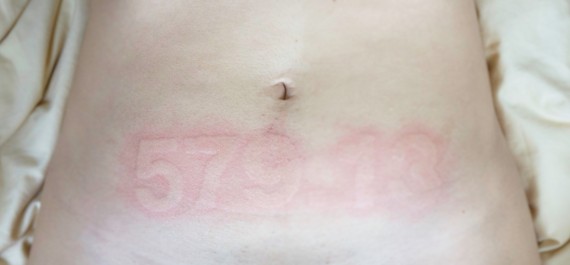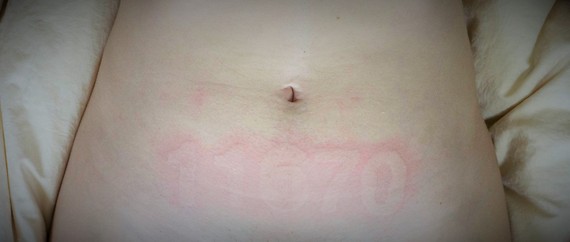Co-authored by Jonas Kooyman
A new installation by Sara Shaoul
In France, mothers get a medal from the government after having four children or more. Some call it the "Reproduction Medal." It's a fact that artist Sara Shaoul learned this year during her summer residency in Paris. It's one of many parent/government-related facts that she stumbled upon during her stay. For example: French mothers get paid maternity leave and child-care costs are next to nothing, thanks to government subsidies. Fascinated, she decided to compare the American system to the French. After getting back to New York, the artist used this inspiration to complete her installation, How To Love Like a French Woman.
Shaoul explains, "This is part of a series of work that grew out of my research during my Artslant residency in France. The title comes from the now enormous list of articles I have compiled teaching American women to be more like French women. This phenomenon of cultural comparison, and its larger meaning, was the starting point of my project. I have also been working on text pieces that elaborate on how the information I gathered intersects with my personal narrative."
In a series of photos it's Shaoul herself, nude, photographed from midriff to thighs, with a number more or less burned onto her belly at uterus height. Ingeniously, she used an over-the-counter cream to get an allergic reaction so the stenciled numbers would be raised.
"Serious life-altering issues are made around these numbers that lose their meaning when you take them out of context," says the artist. Here's number 579.13: the amount of euros that a family receives from the French government per month for one child, regardless of means or professional history. This only includes the monetary contributions directly going to the family. 11670: the maximum income in U.S. dollars that a single adult household in New York can earn in order to qualify for subsidized childcare services.
Says Shaoul: "I thought these numbers really spoke to this clear connection between economic policy and government policy and, literally, the decisions you make for your uterus. So I went for this very visceral, painful... [laughing] disembodied body that is floating in this.... Somebody said it looks like a coffin." In a way her work is reminiscent of the Dutch feminists of the 1960s, who would also use their bellies to communicate and protest (in their case, during pro-choice protests, they would write, Baas in Eigen Buik -- Boss of Our Own Belly" on their tummies.)
So how did this obsession with these numbers start, I asked her. "When one is in a foreign country we are looking at the Other, what is the Other -- it's a reflection of ourselves. There's this duality when you arrive at a new place, who are they, and who am I? It's a constant bounce back." In this phase, Shaoul was noticing the huge differences in government subsidies.
The difference between U.S. and French citizens was striking, almost the ultimate contrast. "In France, it's: you are our citizens, you have to do this, this and this, and in return you'll get this, this and this. America is the land of the self-made man. And the cowboy. And the individualist. The pioneer. The maverick. All these words that mean, I did it my way. P.S.: Don't tell me what to do! P.S.: Don't take my money! P.S.: I don't even really want to pay taxes! There are all these sorts of subscripts and postscripts: If I don't want to send my kids to school and I'll teach them at home what I want, crazy stuff. I don't think that would fly in Europe.... In France the system tries to equalize. Here you have a top that's getting lifted up. The rest down."
Even though much of Shaoul's work is about institutions and their relationship to power -- such as her Chase Manhattan Plaza installation, she wouldn't call herself a typical art-activist. "When I see something is oversimplified, I want a way to show the complexity. This is my form of activism. I continue to explore these ideas, in a new piece of work I've begun examining and manipulating overlapping forms of capitalist reproduction -- the body and the stock market."
We can't wait, Ms. Shaoul!


